Happy Sunday! For those with eyes to see it, the natural world never ceases to amaze. The Royal Entomological Society’s photography contest—featuring some incredible looks at some six-legged creepy crawlies—is just the latest example.
Tragedy has a capacity to melt away bitter division. I will never forget, for example, watching on the afternoon of September 11, 2001, as members of Congress from both parties sang “God Bless America” on the steps of the U.S. Capitol. Whatever resentment there was between rival political parties at the time seemed to melt away in the midst of shared grief and renewed devotion.
Jennifer Brick Murtazashvili has seen it in much more personal ways. She saw up close how the Pittsburgh community rallied around Jewish residents after the 2018 Tree of Life synagogue shooting, in which a white supremacist killed 11 people during Shabbat services. But she also has witnessed a spike in antisemitic vitriol in the months since the October 7 Hamas attack in Israel. As she writes for us today, the ubiquitous calls for unity following a tragedy—such as what we’ve seen in the last eight days in the U.S.—can quickly erode if we are not vigilant in our words and actions toward each other.
Jennifer Brick Murtazashvili: Pittsburgh’s Jewish Community Has Seen Its Sanctuary Shattered Twice
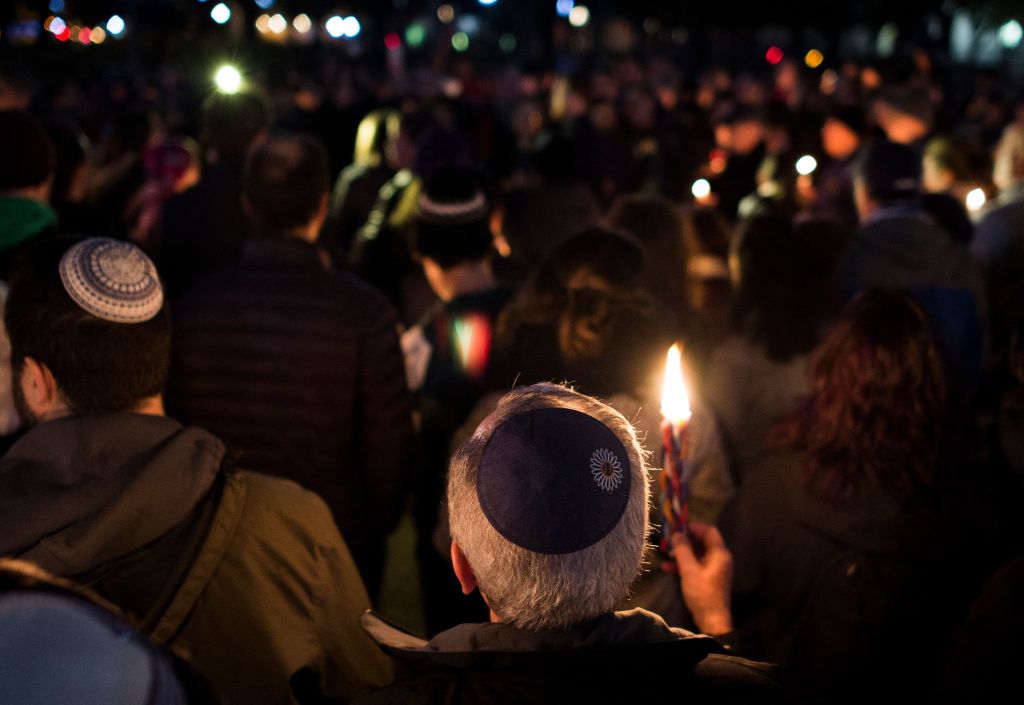
In the days following the horrific terrorist attack at the Tree of Life synagogue on October 27, 2018, Pittsburgh wrapped its arms around the Jewish community of Squirrel Hill. The outpouring of love and support was overwhelming. We felt surrounded by our friends, neighbors, and colleagues and truly loved by everyone in Pittsburgh. It seemed as though our city had come together and found unity around us—that we were all “Stronger than Hate,” a sign that appeared around the city ubiquitously and in people’s yards to decry what had happened.
I grew up at Tree of Life synagogue and celebrated my bat mitzvah there. Like many Pittsburghers, I left the city after high school and never thought I’d come back. But I hit the lottery and got a job at the University of Pittsburgh, where I’ve been for the past 15 years. It has been the greatest joy to raise my four kids in the city and Squirrel Hill neighborhood, where my husband and I have such a strong community.
The day after the Tree of Life massacre, thousands—including most local politicians and activists—gathered at the Soldiers and Sailors Memorial Hall to remember those who were killed. The outpouring was so strong because Pittsburghers wanted to distance themselves from the largest antisemitic attack in U.S. history. Days later, thousands gathered on the lawn at the University of Pittsburgh, where I teach, to proclaim that we are “United against Hate.”
But five years later, in the aftermath of Hamas’ brutal invasion of Israel on October 7, 2023, the feeling of being embraced vanished. The same lawn was the site of a pro-Palestinian encampment that, according to Pitt Chancellor Joan Gabel, left behind antisemitic graffiti. Campus is now regularly peppered with graffiti saying “Thank you, Hamas.”
“The past year has been very isolating for many Jews, because we felt that we were surrounded with allies after October 27, 2018,” Rabbi Seth Adelson of Congregation Beth Shalom told me. “On October 8, 2023, we suddenly felt alone. It happened almost immediately. The swift transition from solidarity to solitude has been disheartening and bewildering.”
After the assassination attempt against former President Donald Trump, politicians have called on us to be more civil and to work together with compassion to overcome differences. I hope for that too. But what happened in Pittsburgh after October 7—an erosion of true unity—is a reminder of how tenuous and hollow such calls can become. Undoing polarization and hatred of each other takes real effort. It requires us to exercise muscles of compassion and understanding, which I fear have atrophied.
Many of us in Squirrel Hill—one of the few remaining urban enclaves of Judaism left in the United States—believed that what happened at Tree of Life was an isolated incident. If it had been, we could surgically remove the cause of our pain. We told ourselves that if there were stricter gun laws or if someone else was in charge in Washington, this never would have happened.
How naïve we were.
What we failed to grapple with at the time was the root cause: antisemitism. At the time, it was simply too painful to admit that the oldest hatred had come roaring back—on the left and the right side of the political spectrum.
The goodwill we all talked about immediately after the Tree of Life shooting now looks more like an aberration, not a harbinger. Jewish members of our community now find ourselves feeling abandoned, isolated, and increasingly worried about what will happen next.
After Tree of Life, many of our non-Jewish neighbors put up signs saying, “No place for hate.” Now the warm embrace of unity has been replaced by a cold shoulder of indifference, or worse, hostility.
Shortly after October 7, when the local Jewish Federation organized a non-political protest to pray for the hostages taken by Hamas and remember those killed in Israel, pro-Palestinian protesters launched an “emergency” protest right across the street in response. Such acts have given the Jewish community little space to grieve. What’s more, the intentional ratcheting up of rhetoric turns support for Israel and Palestine into a zero-sum game: It means you cannot be compassionate for Palestinian victims of the war and those in Israel. You must choose. But this feeds greater polarization and contributes to the dehumanization of “the other,” which in turn will only lead to more violence.
Along with reports of a spike in antisemitic incidents across the U.S. after October 7, the Pittsburgh Jewish Federation reported a 300 percent increase in antisemitic incidents in the greater Pittsburgh area in the last quarter of 2023, compared to the same period in 2022. These incidents ranged from harassment and vandalism to threats against Jewish institutions.
We’ve seen homes splattered with paint and graffiti. We have seen Jewish children harassed on our streets. Antisemitic graffiti is ubiquitous. Antisemitic pamphlets now pepper our neighborhood. Windows of Jewish-owned businesses have been shattered. At my children’s school an Israeli flag was torn down. My own home was graffitied with antisemitic scrawls, which—for reasons still unclear to me—the city took six months to remove.
In response, our community has formed neighborhood watch groups. Countless group chats inform their members of serious incidents taking place. The morning that I wrote this, someone posted to the group that a man in a car was shouting down and following a visibly Jewish teen in Squirrel Hill screaming, “You are a terrorist.”
Parents at my children’s Jewish day school are coming together to demand a protective barrier be erected around the school in case of violence and now volunteer to keep watch over the school. “Our kids are sitting ducks,” one mother, whose cousin was killed in a kibbutz in Israel on October 7, told me. My own children can now discern antisemitic graffiti that comes from the left versus that coming from the right.
There is a warning here for all of us. We may all be talking about more unity following the failed assassination attempt on Trump, but we have to do more to ensure this momentary commitment does not fade. We have to make more foundational changes to how we regard one another and how we grapple with political differences.
But here in Squirrel Hill, living in the wake of Tree of Life, we’re waiting for the next shoe to drop. “After Tree of Life we had a feeling of being loved by everyone in Pittsburgh,” Adelson told me. “Complete strangers came up to hug me because I was Jewish.” This sense of love and protection has dissipated, leaving us exposed and vulnerable. “Almost five years to the day there were people accusing Jews of genocide before Israel invaded Gaza,” he continued. “The worst part of the whole thing is the feeling that you are being abandoned.”
Pittsburgh has become a classic example of what author Dara Horn describes in her book People Love Dead Jews. Horn argues that society often venerates dead Jews while showing little regard for living ones. In Pittsburgh, we’ve seen this play out even in our local politics.
Rep. Summer Lee—a member of the Squad and our congresswoman—tweets about American Israel Public Affairs Committee (AIPAC) as supporting “white supremacists” even after so many of her Jewish constituents died at the hands of a white supremacist at Tree of Life. Leaning into the worst antisemitic tropes and stoking tensions, she tweeted of the group, “They’re just an extremely wealthy white org that operates like so many others: they hate progressive, Black and poor folks fighting for themselves, who they can’t control.” Since October 7, Lee has refused to address her Jewish constituents about what they have experienced and last October was one of only 23 House members to vote against a resolution condemning the Hamas attack.
Within a day of Hamas’ attack—before the smoke cleared and before any Israeli ground operation in Gaza commenced—our county council representative began tweeting celebratory videos of Hamas terrorists on their way to murder, rape and kidnap Israeli civilians. Rather than consider how her rhetoric might affect her Jewish constituents, she celebrated Hamas’ barbarity. A council meeting this spring to debate a resolution she introduced calling for an immediate ceasefire in the Israel-Gaza war only sowed divides in our community and unfurled hateful rhetoric I never thought I’d hear after Tree of Life. A Muslim leader publicly stated that Jews deserved the antisemitism that followed because of their support for Israel, stating that, “nothing will bring you more antisemitism than the path that you are upon.”
Rabbi Jeffrey Myers, who survived the Tree of Life Massacre, rarely ventures into politics. But he spoke publicly at this hearing, saying that introducing a resolution that has no impact on the conflict only serves to stir local emotions and widen divides. “We’ve got 446 bridges in Pittsburgh,” he said. “What can we do to turn down the rhetoric? You are not building bridges, you are building a wall.”
Politicians often invoke the massacre at Tree of Life and use it as a shield to guard themselves against accusations of antisemitism. Yet these same politicians use the memory of the dead to justify policies and rhetoric that endanger living Jews. They tokenize our tragedy while promoting ideas that could lead to more Jewish suffering. It’s a cruel irony that highlights the shallow nature of much of the support we received after 2018.
If Pittsburgh is not safe for us, and Israel is not safe for us, then where is it safe to be Jewish?
As we move forward, we carry with us the memory of those we’ve lost, the strength of our community, and a growing unease about our future. While our community remains united, we can’t help but feel that we’re increasingly alone in a world that once claimed to stand with us. We are worried deeply because we understand how high the stakes are.
And this is too is a lesson to learn after Tree of Life, after October 7, and after the latest example of political violence in Butler County, Pennsylvania, last weekend: We know that while politicians can talk a good game about turning down the rhetoric, most only benefit from turning it up. The result, I fear, will only be more violence.
More Sunday Reads
- On Wednesday, the state of Utah will celebrate Pioneer Day to commemorate the day in 1847 that Brigham Young and the first Latter-day Saints (LDS) entered the Salt Lake Valley. In a piece on our site today, Samuel Benson explains how the celebration nods to LDS theology and the church’s immigration-friendly posture. “The idea of ‘gathering’ is central to this ethos,” he writes. “In order to perform some of the rituals and ordinances necessary for salvation, per Latter-day Saint belief, believers must live in close proximity. This closeness is both practical and spiritual: We attain salvation individually, one Latter-day Saint prophets have taught, but we are exalted—or reach the highest level of celestial glory—communally. Thus, migration became an important part of early Latter-day Saint teaching.”
- Much has been written (including here at The Dispatch) about Sen. J.D. Vance, now the Republican Party’s vice presidential nominee. Whatever one makes of his politics, it’s worth taking the time to read his own account—written in 2020 for The Lamp, a Catholic journal—of how he went from unchurched Protestant to atheist to eventually converting to Catholicism: “As I reflected on these competing views of the world, and the wisdom and shortcomings of each, I felt desperate for a worldview that understood our bad behavior as simultaneously social and individual, structural and moral; that recognized that we are products of our environment; that we have a responsibility to change that environment, but that we are still moral beings with individual duties; one that could speak against rising rates of divorce and addiction, not as sanitized conclusions about their negative social externalities, but with moral outrage.”
A Good Word
Andorra—a tiny, Roman Catholic microstate squeezed between France and Spain whose official language is Catalán—has an established yet relatively brief history of being a haven for Jews fleeing persecution elsewhere. Larry Luxner reports for the Jewish Telegraphic Agency on the country’s history and the estimated 73 Jews who live among the country’s 82,000 residents. “Unlike France and Spain, Andorra has no history of antisemitism,” Luxner writes. “Maybe it’s because for most of its existence, not a single Jew lived here. In fact, there’s no record of a Jewish presence in this landlocked nation until World War II, when it became a temporary haven for French Jews and others fleeing the Nazis—a historical footnote alluded to in the 2023 Netflix miniseries ‘Transatlantic.’” Being so few, the Jews who do live there have their challenges—such as finding rabbis, keeping kosher, and even being buried. But the trade-offs, they say, are worth it. “For the moment, there is no antisemitism in Andorra. Sometimes they ask questions and make faces, but people here don’t really know anything about Judaism.”

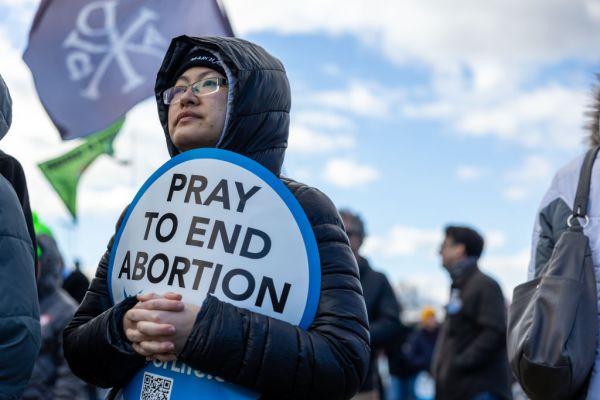

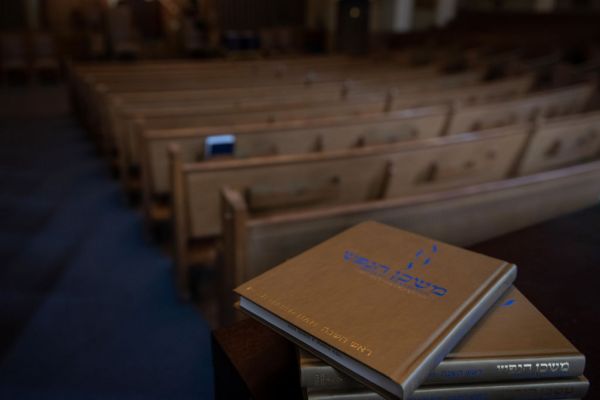
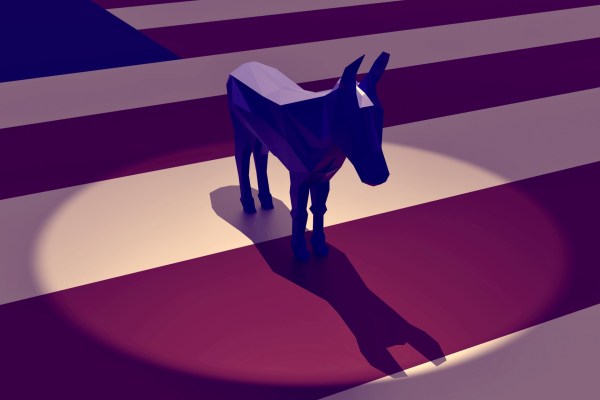
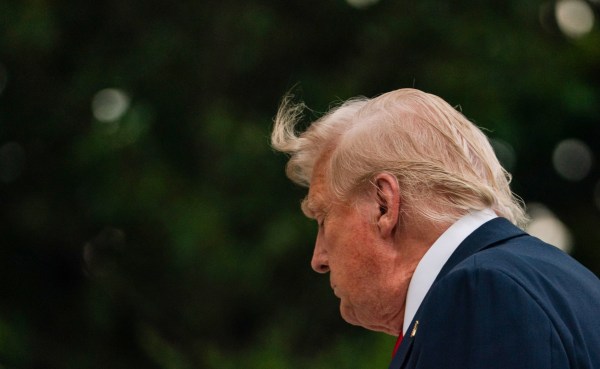



Please note that we at The Dispatch hold ourselves, our work, and our commenters to a higher standard than other places on the internet. We welcome comments that foster genuine debate or discussion—including comments critical of us or our work—but responses that include ad hominem attacks on fellow Dispatch members or are intended to stoke fear and anger may be moderated.
With your membership, you only have the ability to comment on The Morning Dispatch articles. Consider upgrading to join the conversation everywhere.